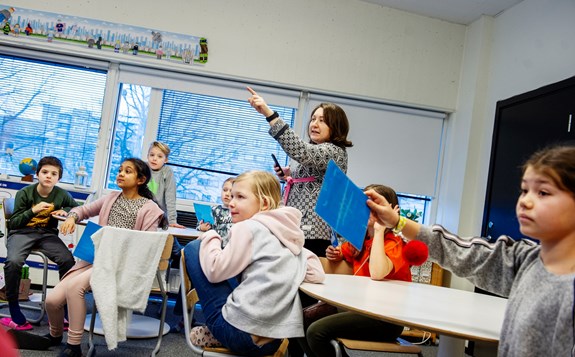We use cookies on this website. Cookies help us deliver the best experience on our website. Read about cookies.
-
- Education
- Education
- Programmes and courses
- Applications and admissions
- Tuition fees
- Scholarships
- Exchange studies at Malmö University
- Study Guidance
-
- After admission
- After admission
- Moving to Malmö
- Pre-orientation
- Arrival guide
-
- About studies at Malmö University
- About studies at Malmö University
- Why choose Malmö University
- Understanding university studies
- Connect with our students
On the page -
- Research
- Research
-
- Doctoral studies
- Doctoral studies
- Doctoral courses
-
- Doctoral schools
- Doctoral schools
- Doctoral school: Education, Learning and Globalisation
- Doctoral school: The National Research School for Professionals in Social Services
- Doctoral school: Learning in Multicultural Societal Contexts
- Doctoral school: ComBine
- Doctoral school: Swedish National Graduate School in Science and Technology Education Research
- Doctoral school: Relevancing Mathematics and Science Education (RelMaS)
- Doctoral school: Sustainable Movement Education
- Doctoral school: Finding ways in a time of great future challenges (FinnFram)
- Doctoral school: Pedagogy and Vocational Skills
- Doctoral school: Culturally Empowering Education through Language and Literature
- Research subjects
-
- Research centres
- Research centres
- Biofilms Research Centre for Biointerfaces
- Citizen Health
- Imagining and Co-Creating Futures
- Institute for Urban Research
- Malmö Institute for Migration Studies
- Literacy and Inclusive Teaching
- Centre for Work Life Studies
- Sustainable Digitalisation Research Centre
- Centre for Sexology and Sexuality Studies
-
- Research publications
- Research publications
- Search publications
- Malmö University Press
- Research events
- Participate in a research study
- Coffee Break Quiz
On the page -
- Collaboration and Innovation
- Collaboration and Innovation
- Innovation
- Collaboration with students
-
- Collaborate with researchers
- Collaborate with researchers
- Labs and facilities
- Culture collaboration
- Support Malmö University
- Alumni & Friends
On the page -
- About us
- About us
-
- Faculties and departments
- Faculties and departments
-
- Faculty of Culture and Society
- Faculty of Culture and Society
- Department of Urban Studies
- Department of Global Political Studies
- School of Arts and Communication
-
- Faculty of Education and Society
- Faculty of Education and Society
- Department of Childhood, Education and Society
- Department of Sports Sciences
- Department of Natural Science, Mathematics and Society
- Department of School Development and Leadership
- Department of Culture, Languages and Media
- Department of Society, Culture and Identity
-
- Faculty of Technology and Society
- Faculty of Technology and Society
- Department of Computer Science and Media Technology
- Department of Materials Science and Applied Mathematics
-
- Faculty of Odontology
- Faculty of Odontology
- Master's programmes in Dental Science
- University Dental Clinic
- Management and decision-making paths
-
- Vision, objectives and strategy 2025
- Vision, objectives and strategy 2025
- Global engagement
- Sustainability
- Widened recruitment and participation
- Quality assurance work at the University
-
- Malmö Academic Choir and Orchestra
- Malmö Academic Choir and Orchestra
- Student work – video pieces
-
- Annual Academic Celebration
- Annual Academic Celebration
- Academic traditions
- Meet our new professors
- The University in a troubled world
On the page
Didactics
Research in didactics takes an interest in the factors and relationships that affect teaching and the conditions of learning, with a special focus on schools. Didactic research strives to formulate theories and models where relationships between school/society, the choice of content, teachers' work, and students' education are important parameters.
Didactics as a field of research is concerned with what influences, enables or hinders teaching and learning in different contexts. Learning is seen as something that can take place in formal contexts, such as school and education at different levels, in semi-formal contexts, for example in museums, and also informally, for example as an integral part of professional life. However, most often didactic research is about school teaching (different ages). Areas of interest are choice of content, motivations for content selection and the process of transforming university disciplines to content for teaching in schools.
Teaching is studied from several different perspectives and many factors and knowledge bases are relevant. Didactic theories are about teaching and Bildung. Some theories are based on an empirical-analytical perspective, while others are based to a greater extent on philosophy of education. Together, the didactic theories contribute to perspectives and models in relation to the didactic questions (why, what, how, etc.).
The core of didactics is to concretise and operationalise didactic theories that answer the didactic questions. This can be done by developing or systematically testing didactic models or by making different didactic choices visible as well as their implications. The didactic research at Malmö University is both general and subject-specific.
Researchers, publications and projects

Vildana Basic

Lisa Björklund Boistrup

Mikael Bruér

Eva Davidsson

Helen Hasslöf

Hanna Hofverberg

Kristine Hultberg Ingridz

Manuela Lupsa

Torun Mattsson

Shaun Nolan

Birgitta Nordén

Linda Palla

Helena Roos

David Rosenlund

Hanna Sandgaard-Ekdahl

Per Schubert

Ann-Christine Vallberg Roth
-
2025 | Article in journal
Lärares och elevers arbete med den textlösa bilderboken Migrants i ett skriftspråkligt undervisningsparadigm
Robert Walldén, Chrysogonus Siddha Malilang
-
2025 | Article in journal
Kraftfull kunskap och epistemisk kvalitet när svenska som andraspråk samläses med svenska i årskurs 6
Anna Lindholm, Anna Winlund, Robert Walldén
-
2025 | Article in journal
Därför haltar kritiken mot skrivundervisnings-råden
Robert Walldén
-
2025 | Article in journal
Two-Eyed Seeing as a didaktik model in Education for Sustainability
Jesper Sjöström, Paul Clucas, Ingo Eilks
-
2025 | Chapter in book
Science Education for Transformation: Theorizing the Three Visions as a Basis for New Didaktik Models for Worldview Awareness and Socio-political Transformation
Jesper Sjöström
-
2025 | Article in journal
Student Teachers’ Didactic Choices and Motives when Designing Digital Competence Education: Pupils’ Age as a Didactic Dimension
Carolina Martinez
-
2025 | Article in journal
Mobile-Assisted Shadowing: Transforming Pronunciation for Arab English Learners
Bilal Zakarneh, Diana Amin Mohammad Mahmoud, Laid Bouakaz, Ramiza Haji Darmi, Nagaletchimee Annamalai
-
2025 | Article in journal
Approaching middle-school student science learning and sustainability dilemmas through co-creation processes with science professionals
Vildana Bašić, Eva Davidsson
-
2025 | Doctoral thesis, comprehensive summary
Supporting students’ development of technological literacy through visualisations and verbal interactions
Johan Lind
-
2025 | Article in journal
Editorial and an introduction: intersections of historical and democratic consciousness in history curriculum and/or syllabus: A study across nine countries
Silvia Edling, Heather Sharp, Niklas Ammert, Fredrik Alvén, Jan Markus Löfström
-
 Research project
Research projectComparative Analysis of Sexuality Education Policies and Implementation Strategies in South Africa and Sweden
mats.lundstrom@mau.se -
 Research project
Research projectThe Literary Canon in Sweden. Consensus and Conflict in Educational Policy, Public Debate and Pedagogical Practice
magnus.persson@mau.se -
 Research project
Research projectResearching the Teaching and Learning of Action Competence in Relation to Sustainability
hanna.hofverberg@mau.se -
 Research project
Research projectConditions for reading and writing development? Collaboration between schools and libraries in socially disadvantaged areas
robert.wallden@mau.se -
 Research project
Research projectEducational background, language learning strategies and language development among adult second-language learners of Swedis
robert.wallden@mau.se -
 Research project
Research projectWordless picturebooks and their potential for literacy development in diverse classrooms
robert.wallden@mau.se -
 Research project
Research projectDrama and poetry in the EFL primary classroom.
psarri.chrysiida@mau.se -
 Research project
Research projectMultimodal Literary Texts in Middle School English Language Classroom: Affordances and Constraints
edith.fon@mau.se -
 Research project
Research projectTeacher Research Literacy (TREL): Comparative Trajectories in the Nordic-Baltic Region
shaun.nolan@mau.se -
 Research project
Research projectWorking with the updated sexuality education directives: A process-oriented practice-based study in a Swedish municipality
-
 Research project
Research projectSpaces for multilingualism? An interdisciplinary study of pedagogical potentials and limitations of multilingual approaches and activities...
pia.nygard-larsson@mau.se -
 Research project
Research projectMovement subject knowledge in physical education teacher education
jan-eric.ekberg@mau.se -
 Research project
Research projectScaffolding writing with a focus om adult L2 learners
hanna.sandgaard-ekdahl@mau.se



























